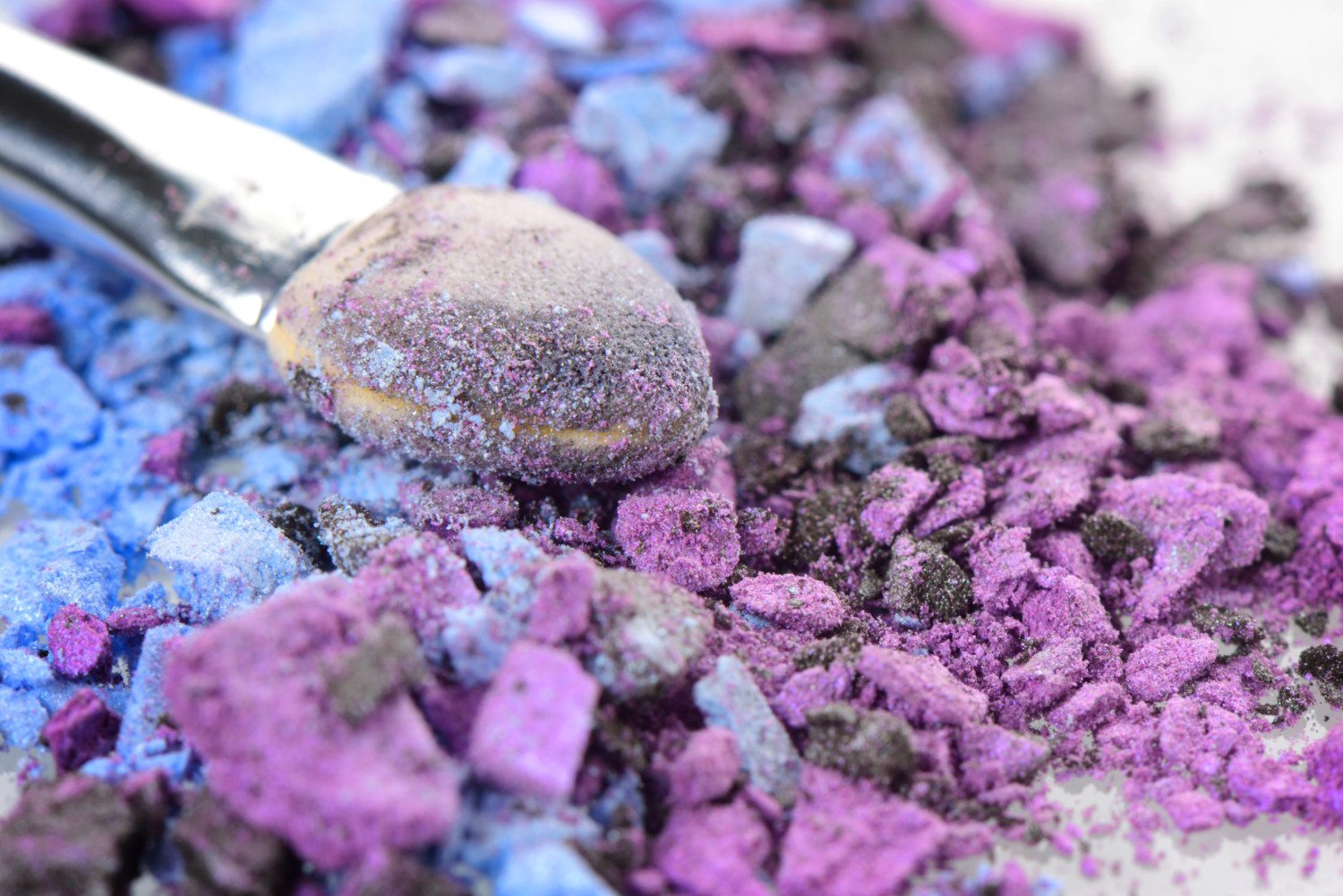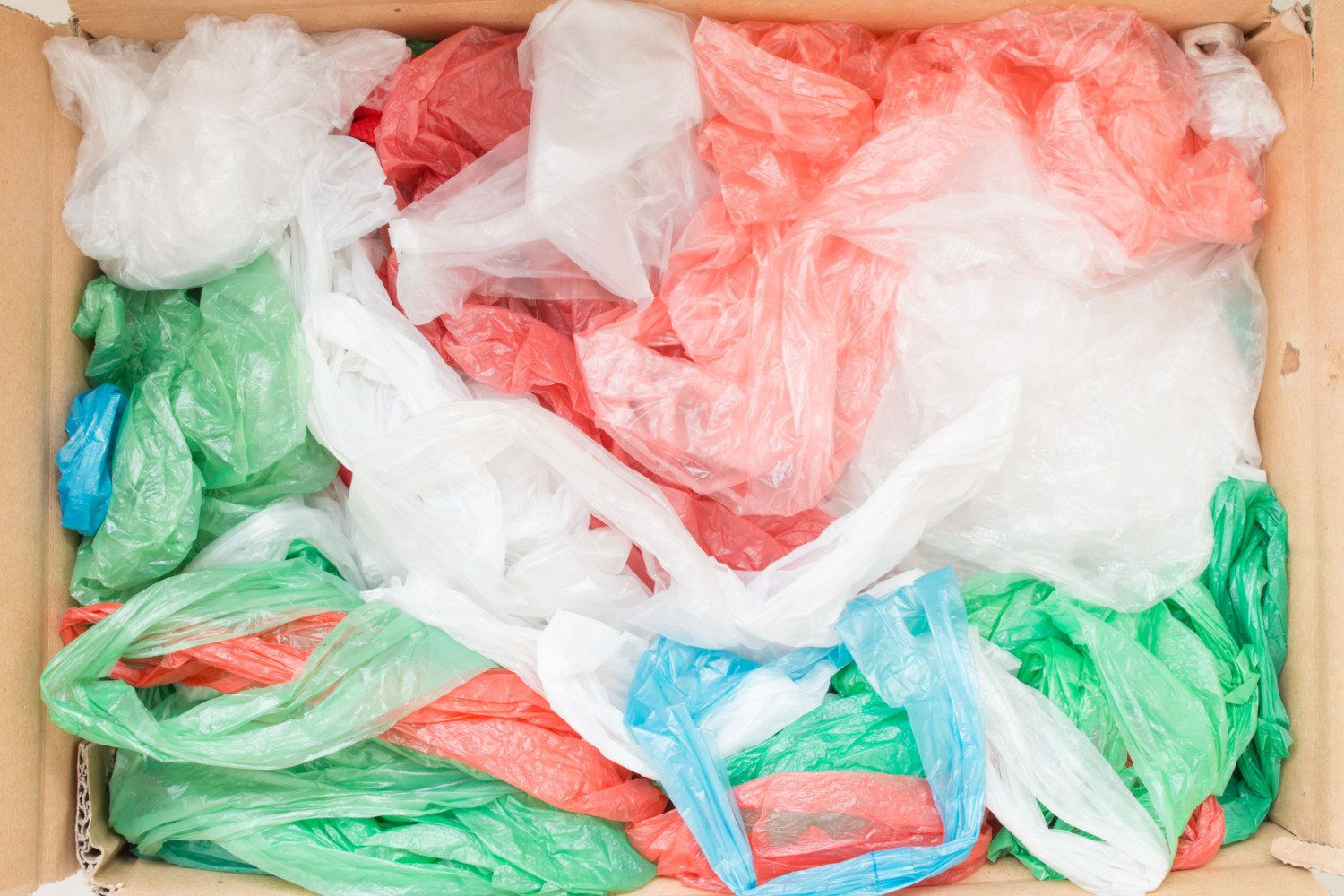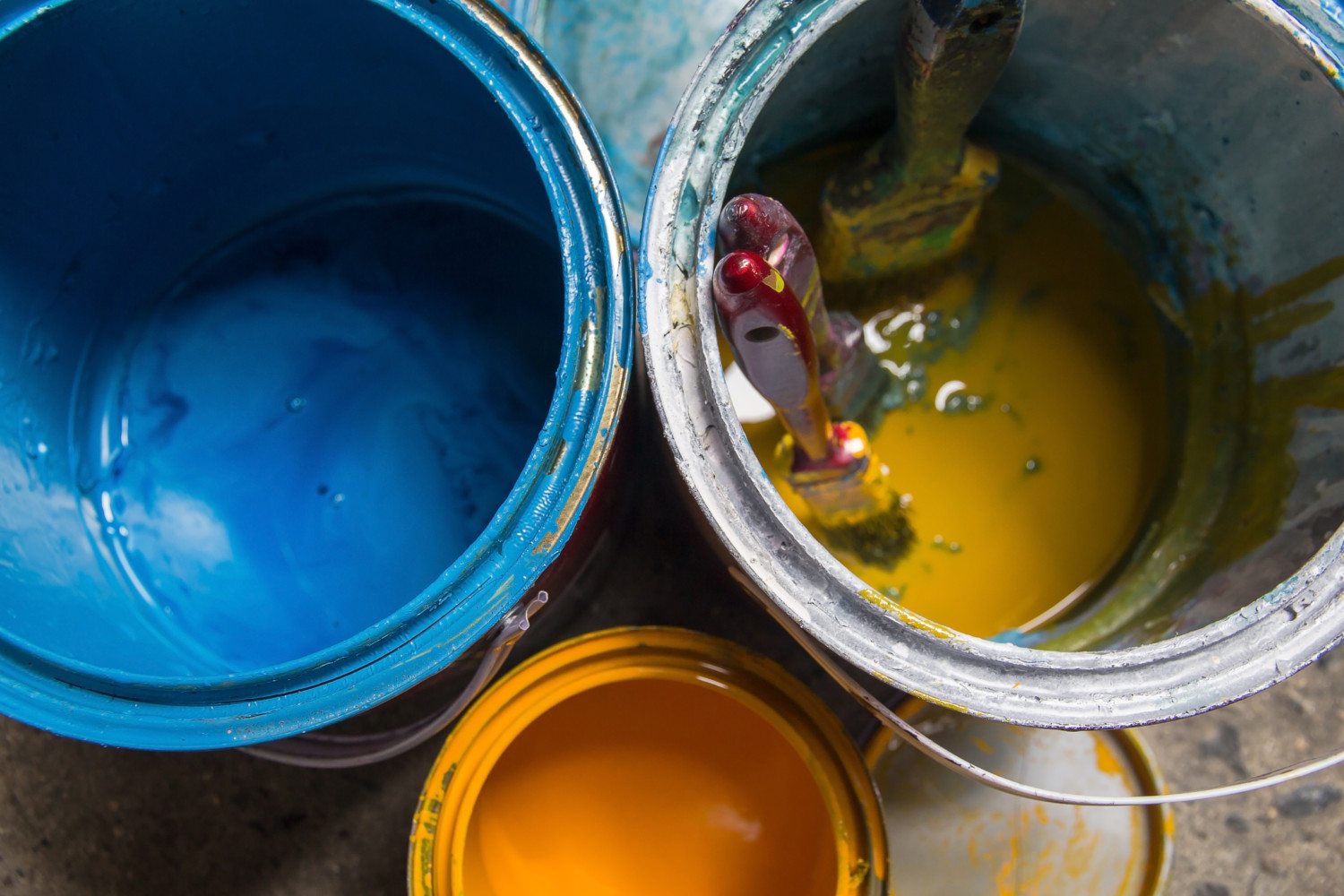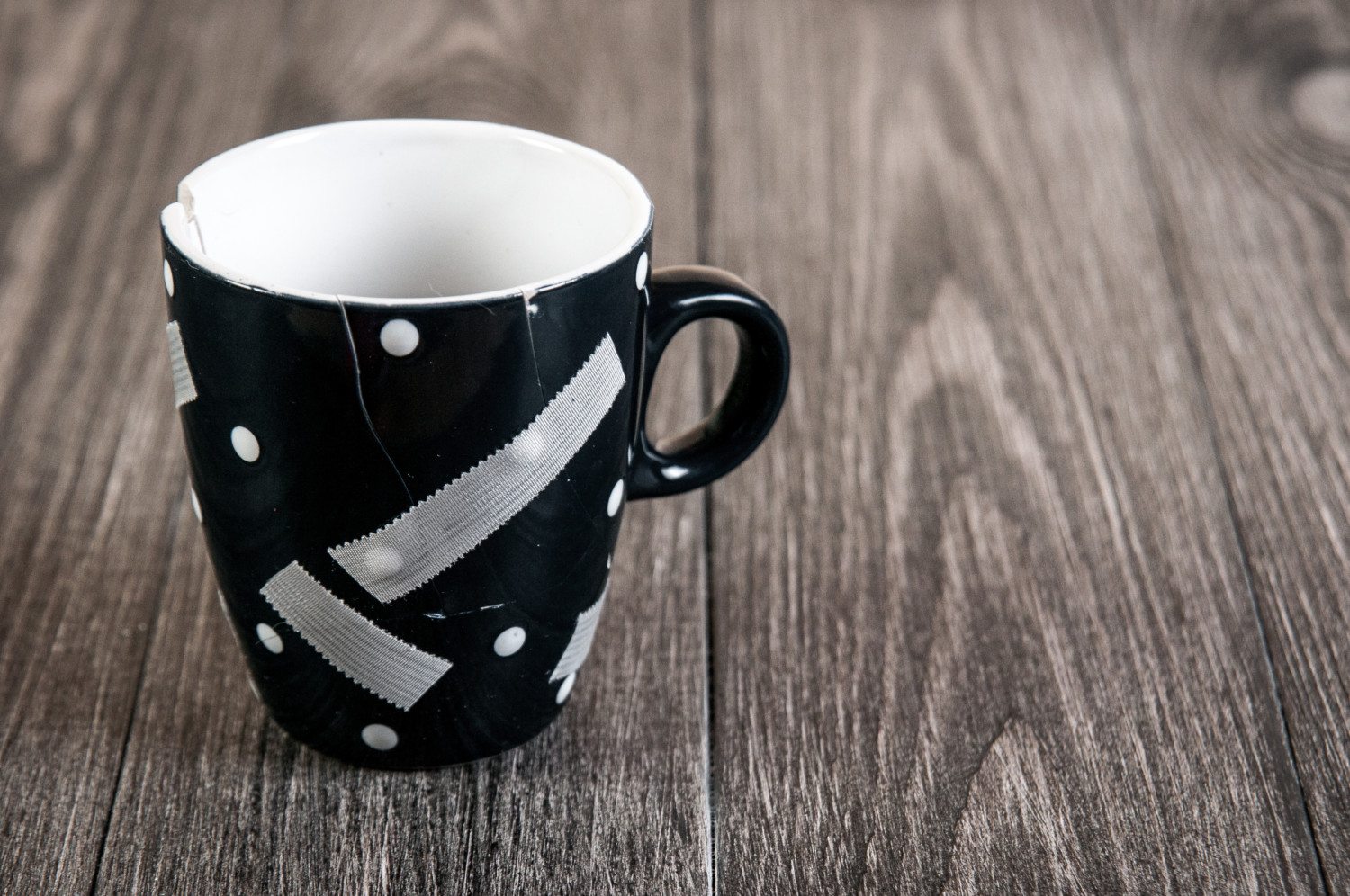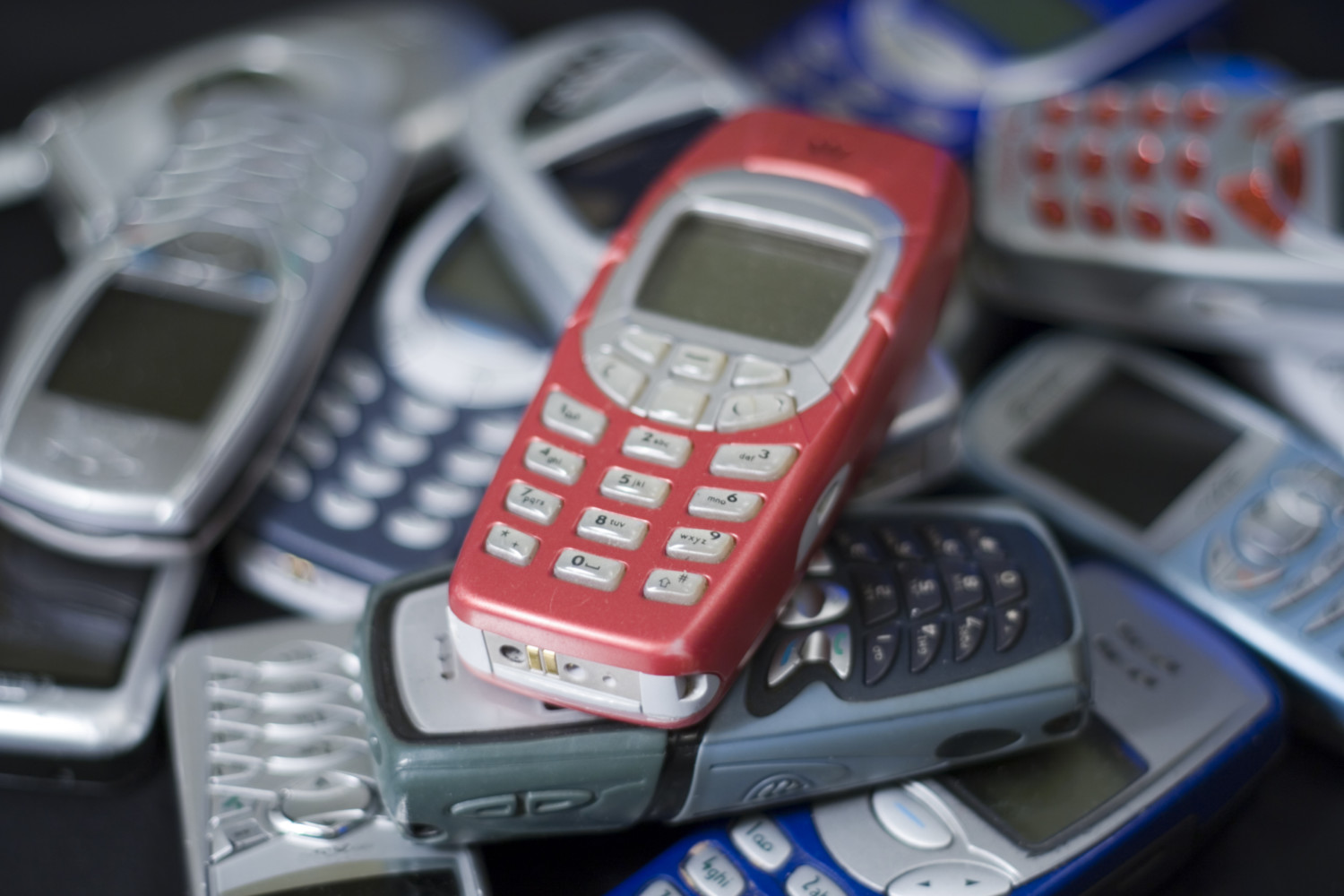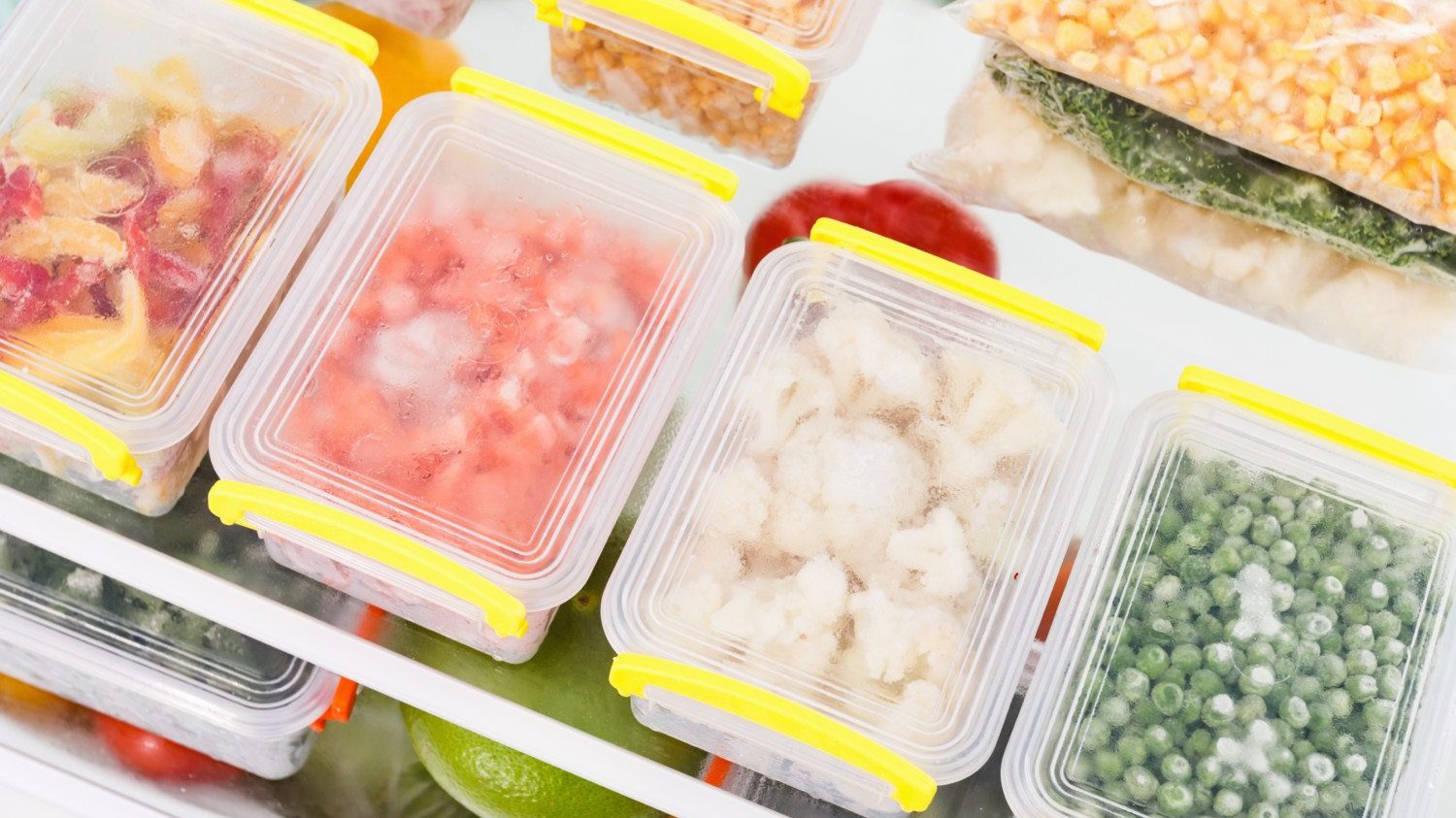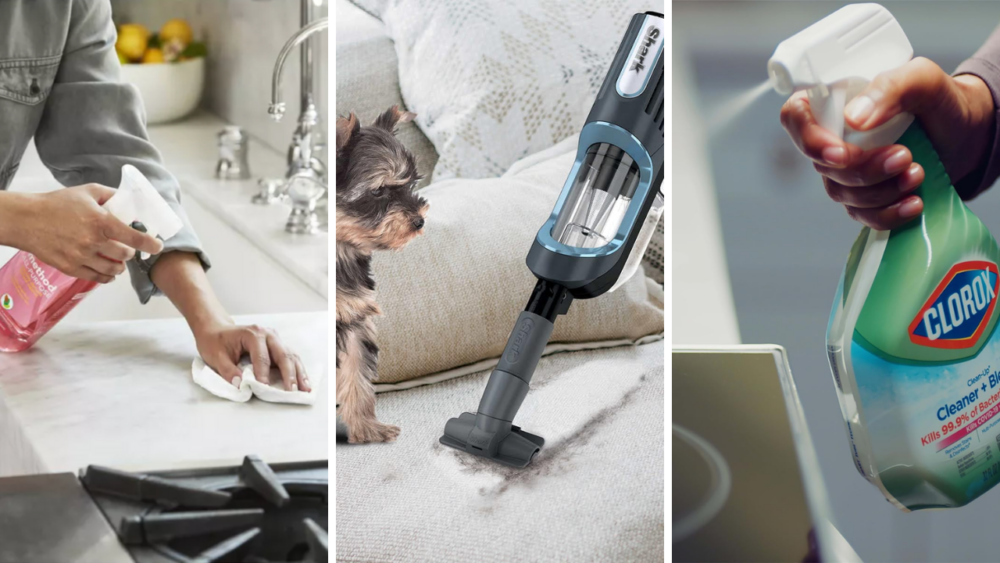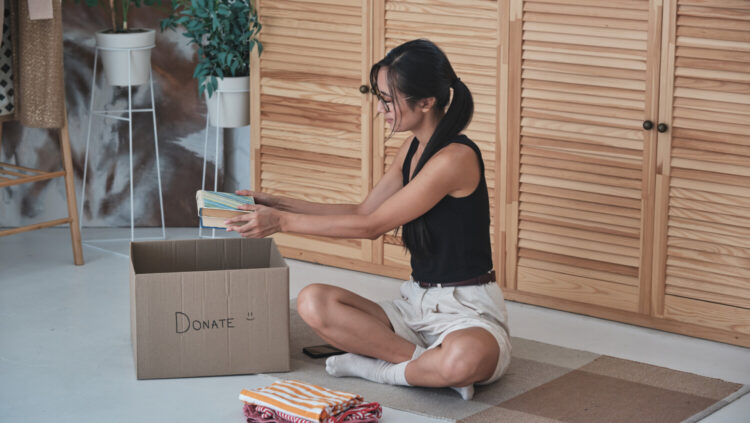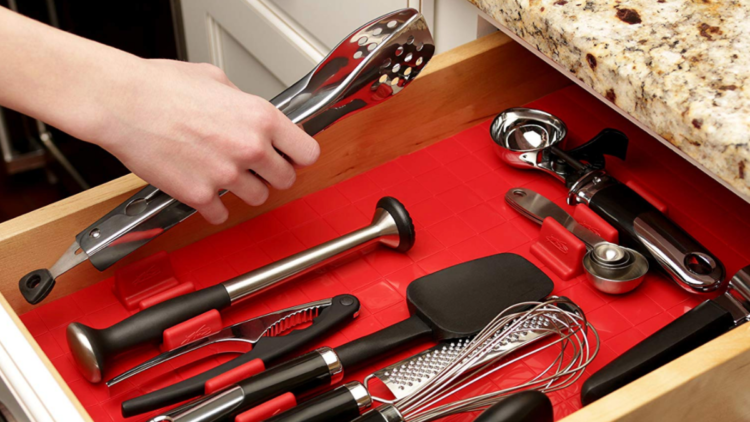41 things you can get rid of today for a more organized home
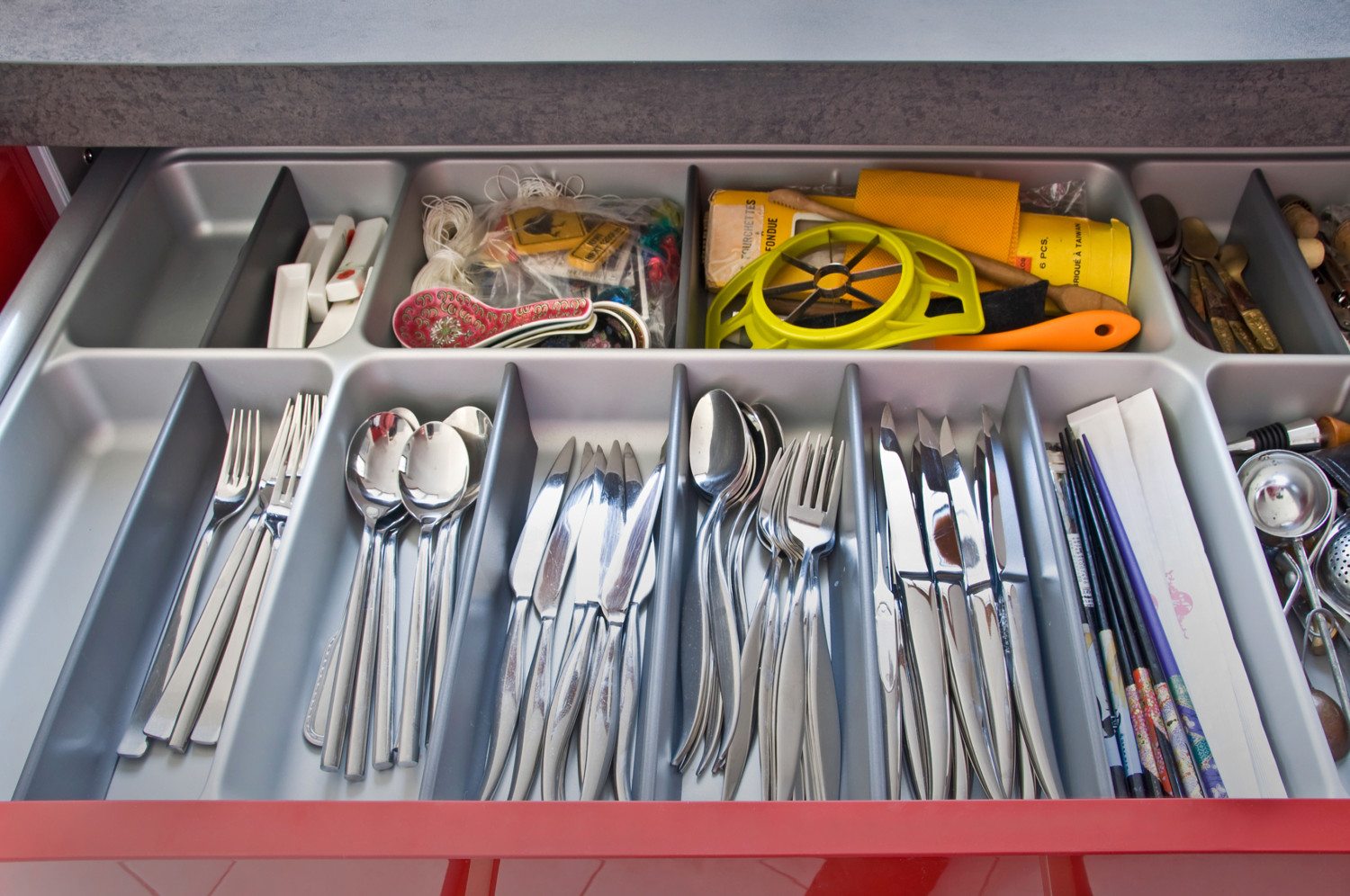
- October 12, 2018 |Last updated on 02/07/2022
Comedian George Carlin once joked that “a house is just a place to keep your stuff while you go out and get more stuff.”
All jokes aside, more than half of Americans are overwhelmed by clutter. The majority have no idea what to do with all that stuff, so they just let it build up, according to a survey done a few years ago by the National Association for Professional Organizers and Decluttr, an app that helps people sell their stuff.
As we move into spring cleaning season, we turned to professional organizers to find out exactly what household items we should be tossing and donating (and where).
Here are common clutter culprits you can get rid of now.
1. Take-Out Items
Toss the plastic utensils and sauce packets that come with food deliveries and takeout, suggests Michelle Hale, organizer and co-founder of Henry & Higby, a professional organizing and styling company in New York City. Unless you frequently reuse them for to-go lunches, they’re just taking up space in your drawers.
2. Cords and Chargers
Round up your cords and chargers and take note of which ones you actually use, suggests Hale. Get rid of the stray or frayed cords and donate the older cords and chargers that may still be useful. You can even take these to your local Best Buy for recycling
3. Spices
Look over the expiration dates on your spices in your pantry, Hale suggests. Dried herbs typically last for one to three years after you purchase them. The shelf life of ground spices is about two to three years, she says.
4. Boxes
No need to keep boxes for appliances and electronics that are past their return dates for warranties, says Lauren Williams, Certified Professional Organizer and owner of Casual Uncluttering LLC, in Woodinville, Wash. She says people often try to rationalize keeping boxes because they might move someday and the boxes will be useful.
“Boxes take up huge amounts of space and are prone to mold, mildew and horribly attractive to vermin,” Williams says. “You can always get another box.”
5. Broken Items
Whether it’s an ornament or a necklace, don’t hold on to broken stuff thinking you’ll get around to fixing it or that you’ll turn it into art or because it “kind of still works,” advises Williams.
“Good intentions are wonderful, but if they aren’t turned into action, all you’ve got is a dusty, possibly hazardous, guilt-inducing thing taking up space and staring at you from the closet,” she says.
6. Expired Makeup
Yes, makeup can be super expensive and your favorite lash-boosting mascara might get discontinued. But, Williams says, you need to toss expired makeup. Once it’s past its prime, it can cause allergic reactions and harbor bacteria. Eye makeup like mascaras and liquid eyeliners, for example, are only good for a maximum of six months, Williams says.
You can recycle beauty and skincare product packaging at Nordstrom and Nordstrom Rack.
7. Gifts You Never Liked
“I’ve noticed that it’s painful for my clients to donate things they received as gifts, even if they detest the items,” says Thalia Poulos, a San Diego-based professional organizer with Organized Beautifully. Really, though, those unwanted gifts are dust collectors and have no value, so they need to make their way to the donation bin.
8. Old Magazines
Don’t hang on to bulky magazines unless the magazine itself is relevant because you were featured in it or it commemorates an important event, says Jennifer Snyder, a Certified Professional Organizer and owner of Neat as a Pin Organizing Experts in Waco, Texas. If this is the case, she says, store it with personal, sentimental items instead of in a stack of magazines where it’s likely to be forgotten.
9. Wire Hangers
Go ahead and blame the dry cleaner for this one. Those wire hangers they send you home with can leave creases on the shoulders of shirts and sweaters, explains Carrie Peeples, a Georgia-based personal organizer with NeatSmart. Her suggestion: Keep a paper shopping bag in your closet, put those wire hangers in it and then return them during your next trip to the cleaners. She suggests using wooden or velvet hangers whenever possible to keep your clothes in tip-top shape.
10. Plastic Garment Bags
Plastic garment bags are intended for you to get your clothes home without damage and to protect from the elements. “Your clothes need to breathe, so throw away the plastic bags once you put your clothes in your closet,” Peeples says. “If you want to recycle the bags, you can tie a knot in the bottom and use it as a trash can liner.” The one exception? Hang on to a couple if you’re traveling and want to prevent wrinkling, Peeples says.
11. Plastic Cups
Peeples jokes that this falls into the category of “things that reproduce behind your back.” They come from parties, networking events, fast food restaurants and sporting events and before you know it they’re mounting a takeover in your cabinets.
The truth, though? “You’re not going to immortalize a special event by keeping a plastic cup.” Use them for storage in the garage, craft room, under the sink or in a playroom — then recycle the rest.
12. Shopping Bags
Whether it’s plastic, cloth or paper, you probably have more than enough shopping bags, says Peeples. Yes, plastic grocery bags can double as doggie poop bags, trash can liners or wet swimsuit holders, but Peeples suggests limiting your bags to a certain number. Cloth grocery bags are often given away as promotions or party memorabilia. Keep a few and donate others that are in good condition. As for paper bags from boutiques, they can feel like a badge of honor, especially when the purchase was a treat, Peeples says. But again, just keep a few. The small ones can make brown-bagging your lunch feel chic. If they’re plain and in good condition, re-purpose them as gift bags, she suggests.
13. Estate Items
Many people have items from deceased family members and often hang onto them out of guilt, explains Ben Soreff, a professional organizer with Connecticut-based House to Home Organizing.
“If you love the piece, and it brings up fond memories, great,” he says. “But if that bookcase from your great uncle is only in your home because you feel bad and don’t know what to do with it, donate it so that someone can use it.”
14. Exercise Equipment That’s Not Getting Used
Truth test: Does that treadmill seem to be more of a clothing rack than a piece of exercise equipment? Soreff notes that many people hold on to “aspirational” sporting or exercise equipment and truly believe they will do the activity in the future.
“If you are holding on to that exercise bike because you ‘should’ use it, try a trial membership at a gym instead,” he suggests.
15. Craft Supplies
Craft supplies are oftentimes tough to get rid of because you can’t stop imagining all the project possibilities. That and it’s hard to imagine who might want your crafty odds and ends, says Darla DeMorrow with HeartWork Organizing.
If you haven’t used them in a year, donate them, she suggests. Oftentimes a pre-school or crafting club might want them. Thrift stores can also take batches of craft supplies to sell as a lot, says DeMorrow, the author of “Organizing Your Home with SORT and Succeed.”
16. College Textbooks
You paid good money for those books, DeMorrow says, but are you ever going to review those algebra or accounting textbooks?
“Check online for textbook re-sale opportunities,” she suggests. Retailers like Chegg, eCampus, and BookScouter will buy your old textbooks. If they can’t be sold, recycle them.
17. Every Printed Photo
“Because printed photos were expensive back in the day, we kept everything that got developed,” points out DeMorrow, who is a certified photo organizer. “Because your printed photo collection is chock full of duplicate prints and random beaches, toes and zoo animals, the average collection can painlessly be downsized by about 20 to 30%.”
18. Eyeglasses
Having a spare pair or two makes sense, DeMorrow says. But if you’ve got several extra pairs, it’s time to donate them. As an example, the Lions Club can take old prescription sunglasses and glasses and then refurbish them and send them overseas to help improve vision care for people in underdeveloped countries.
19. Clothes You’re Not Wearing
Many people think they need more closet space but, really, they just need fewer belongings, says Felice Cohen, an organizer and author of “90 Lessons for Living Large in 90 Square Feet (…Or More).”
“We only wear a fraction of our clothes, so we must ask ourselves why aren’t we wearing items,” she says. Is it the fit? Comfort? We got it on sale and actually don’t like it? She suggests an annual closet purge when you take everything out of your closet and only put back what you love. Donate items that are in good shape.
20. Tupperware Without Lids
Or lids without Tupperware. Take out all of your Tupperware and match it up, Cohen suggests. If it’s got a missing partner, set it aside. Then, look at the other places it could possibly be, like the dishwasher or a cabinet. Give yourself a week. If you can’t find its match, toss it.
21. Old Paint Cans
People tend to think they need to save these cans of paint in case they need to do a touch-up on their walls, Cohen says. But after a year, the paint starts to change color. Instead, she suggests, write down the name of the paint color and brand and a mixing code if applicable.
Some places, like PaintCare, will recycle your leftover paint.
22. Paper
Whether it’s monthly statements, kids’ artwork or daily mail, all that paper accumulates quickly, says Rachel Rosenthal, a Washington D.C.-area organizer with Rachel & Company.
“The good news is that you don’t need to hang on to much of it,” she says. “About 80% of what gets filed never gets looked at again.” Bank statements and pay stubs are good to hang on to for a year, but you don’t need to keep storing your taxes from 2000. Hang on to those returns for seven years from the filing date. Remember, manuals, contracts and credit card records are often available online, Rosenthal says.
23. Toys With Missing Pieces
Whether it’s a puzzle with missing pieces or the back half of a spaceship, it’s time to get rid of those toys with missing pieces, says Amy Trager, a Chicago-area certified personal organizer.
“If it’s a favorite toy, then set it aside somewhere it won’t get lost in the shuffle of other toys while you wait a while longer for the missing piece to surface,” she says. “If it’s been a year, time to move on.”
24. Mysterious Objects
Simply put, if you don’t know what it is, you don’t need it, Trager says. “If it’s found in a shared space, though, ask the other people who use the space to look at the items before tossing them.”
25. Old Calendars
You won’t need to use a 2017 calendar after the year ends, says Marty Basher, home organization expert for Modular Closets. We promise those cute puppies will star on future calendars and are just as cute.
26. Chipped Kitchenware
Get rid of those chipped plates, bowls and mugs, Basher says. They’re a safety hazard.
27. Expired Or Unused Medication
Expired medication can pose a health hazard, Basher says. The U.S. Food and Drug Administration has a tip sheet on how to safely dispose of medicine in the event you don’t have access to a medicine take-back event.
28. Empty Medicine Bottles
These bottles are just taking up space, Basher says. But if it’s a prescription, be sure to black out your personal information.
29. Missing Socks
Socks that are missing their match can be tossed, Basher says. A tip: Set up a bin for lone socks in your laundry room. If the matching sock doesn’t re-appear in a few cycles, it’s time to part with the lone sock.
30. Old Receipts
Get rid of receipts for items you no longer own, or that have exceeded their return deadline, Basher says. One exception: Keep the receipts you need for deductions on your taxes.
31. Holiday Cards
More will arrive next year. If there are some with special meaning, go ahead and keep them, Basher suggests. If you want to keep them but clear up the clutter from your wall or mantel, consider adding them to a photo album or scrapbook.
32. Old Cell Phones
Donate your old cell phones, suggests Basher. Here are 10 places that will take old phones, even that first-generation iPhone or your old Razr.
33. Uncomfortable Shoes
There’s no point in keeping shoes that consistently give your feet blisters, says Basher. If they’re in good shape, donate them; they might fit someone else better.
34. Old Cookbooks
Get rid of those cookbooks you’re no longer using, Basher suggests. “For example, donate ‘How to Cook Chicken’ if you’ve become vegan,” he says.
35. Overused Hair Ties
The bathroom can be a magnet for clutter. Get rid of those stretched-out hair ties (they’re just waiting to break and free your ponytail at the most inconvenient time) and those bent bobby pins, suggests Merry Maids.
36. Beat-Up Towels And Linens
If you’re hanging on to worn, fraying bedsheets or towels, chances are they’re just taking up space in your linen closet. Consider cutting a few up to use as cleaning rags give the rest the heave-ho.
37. Old Phone Books
Unless you use them as a booster seat for visiting grandchildren or plan to try one of these 17 clever uses for old yellow pages, it’s time to let go of those old phone books.
38. Unusable Bows And Wrapping Paper
Hanging onto old bows is a great money-saver, especially come holiday season when you have lots of gifts to wrap. If you find yourself passing over the same flattened, damaged bows every time it’s time to wrap a gift, that means it’s time to let it go. The same goes for creased and crinkled wrapping and tissue paper.
39. Expired Or Unused Toiletries
Many bathrooms have stray skincare samples lurking in their depths. If the product samples are fairly new, treat yourself tonight and give them a try. Otherwise, toss ’em!
40. Frozen Food
Frozen food can easily be left to languish in the back of your freezer. Use this guide to determine how long common foods can last in the freezer, and get rid of anything that’s past its prime.
41. Kitchen Items You Never Use
If you look through your kitchen to find a fondue pot you last used a decade ago or a quesadilla maker that never even made it out of the packaging, it’s time to say goodbye. Chances are you won’t miss the kitchen gadgets you rarely use, but it’s likely you will notice and enjoy the newfound space that getting rid of them creates.
Doesn’t this list get you psyched to clean house?


